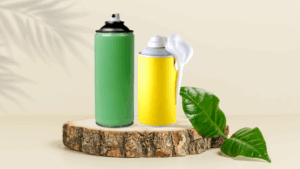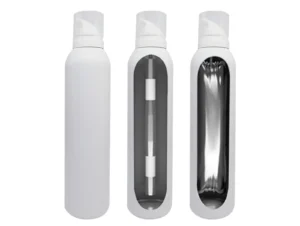There is a growing trend of consumers that are looking for products that can improve their health and lifestyle especially in Europe. One of the popular products is coconut oil wherein there is a 63% increase of web search in United Kingdom from 2011 to present (2021 via Google Trends).
Coconut oil has a lot of proven health benefits including the following:
(Source: https://www.healthline.com/nutrition/top-10-evidence-based-health-benefits-of-coconut-oil#Special-considerations)
- Encourages fat burning
- A quick source of energy
- Has antimicrobial properties
- Helps to lessen the hungry feeling
- Reduces seizures
- Boosts skin health
- Improves oral health
- Protects and improves hair
- Helps reduce symptoms of Alzheimer’s disease
And the list goes on….but wait, not all coconut oil is the same!
Yes you read it right. Coconut oil quality differs from different source. That is why European Union (EU) regulations draft strict standards to ensure that only high quality coconut oil can pass through EU borders. Here are some requirements for exporting oil (including coconut oil) to Europe:
Legal Requirements: (Source: https://www.cbi.eu/market-information/vegetable-oils/virgin-coconut-oil)
- Traceability, hygiene and control
- Contamination
- Erucic acid content
- Extraction solvents
- Product composition
- Labelling, including allergens and nutrition & health claims
- Food contact materials
But most importantly, the following specifications must be complied:
| Test Method | EU Specifications for Vegetable Oils |
| Heavy Metals (As, Cd, Fe, Cu) | Arsenic ≤ 0.1 mg/kg |
| Cadmium ≤ 0.01 mg/kg | |
| Iron ≤ 0.1 mg/kg (not for pumpkin seed oil) | |
| Copper in refined oil/fats ≤ 0.1 mg/kg | |
| Copper in virgin oils* ≤ 0.4 mg/kg | |
| 3-MCPD and glycidyl esters (sum) | For refined oils/fats = max. 50% of TDI (Calculated for: 60kg person; 30mL portion); Equiv to 0.625ppm |
| Glycidyl ester, determined as free glycidol refined oils/ fats glycidol | Refined oils/fats = Glycidyl ester max. 25% of the old TDI for 3-MCPD (0.8 µg/kg KG); (Calculated for: 60kg person; 30mL portion); Equiv to 0.3125 ppm |
| Polycyclic aromatic hydrocarbons (PAH) | Benzo[a]pyrene = max. 50% for the legally permitted maximum value |
| Sum (PAH4) ≤ 10 µg/kg | |
| Other PAH = content unobtrusively | |
| Mineral oil residues (MOSH/MOAH) | MOAH = not detectable |
| Determination limit = 1 mg/kg | |
| MOSH (total) = max. 2 mg/kg | |
| Determination limit = 1 mg/kg | |
| BTEX (Benzol, Toluol, Ethylbenzol, Xylol, Styrol) | Benzol = max. 0.05 mg/kg |
| Toluol = max. 0.18 mg/kg | |
| Ethylbenzol = max. 0.05 mg/kg | |
| Xylol = max. 0.28 mg/kg | |
| Styrol = max. 0.64 mg/kg | |
| Volatile halogenated hydrocarbons | max. 0.05 mg/kg |
| Pesticides | Conventional Product: 33% of the maximum residue limit of the permitted pesticides. Percentage utilization of all active substance residues: max. 80% of the legal limits; max. 5 substances in traces. |
| Organic Product: According to the BNN-values in the current version no more than 2 substances verifiable | |
| Residual solvents | Not detectable |
| Phthalates/Adipates | DEHP < 1 mg/kg |
| DMP < 1 mg/kg | |
| DBP < 0.3 mg/kg | |
| DEP < 1 mg/kg | |
| BBP < 1 mg/kg | |
| D-n-OP < 1 mg/kg | |
| DINCH < 5 mg/kg | |
| DINP <5 mg/kg | |
| DIDP < 5 mg/kg | |
| DEHA < 1 mg/kg | |
| Triisobutylphosphate < 1 mg/kg | |
| Acetyltributylcitrate < 1 mg/kg | |
| DIBP < 0.3 mg/kg | |
| Chlorinated plastics | no PVC/PVDC/other chlorinated bonds in packaging parts |
| Total viable aerobic count | < 10 KbE/g |
| Moulds | < 10 KbE/g |
| Escherichia coli | < 10 KbE/g |
Coconut oil must passed the strict specifications above especially the 3-MCPD, PAHs, MOSH/MOAH and heavy metals which are considered carcinogens and toxic or hazardous to human health.
To ensure that you source high quality coconut oil that meets EU regulation requirements, contact Natura Aeropack, Inc.
Natura is an ISO certified company and one of the biggest suppliers of coconut oil in the Philippines. Coconut oil from Natura meets EU and global standards and is also HALAL and Kosher certified.
Inquire now and start exporting coconut oil to Europe and other parts of the world.





